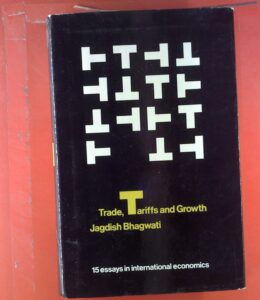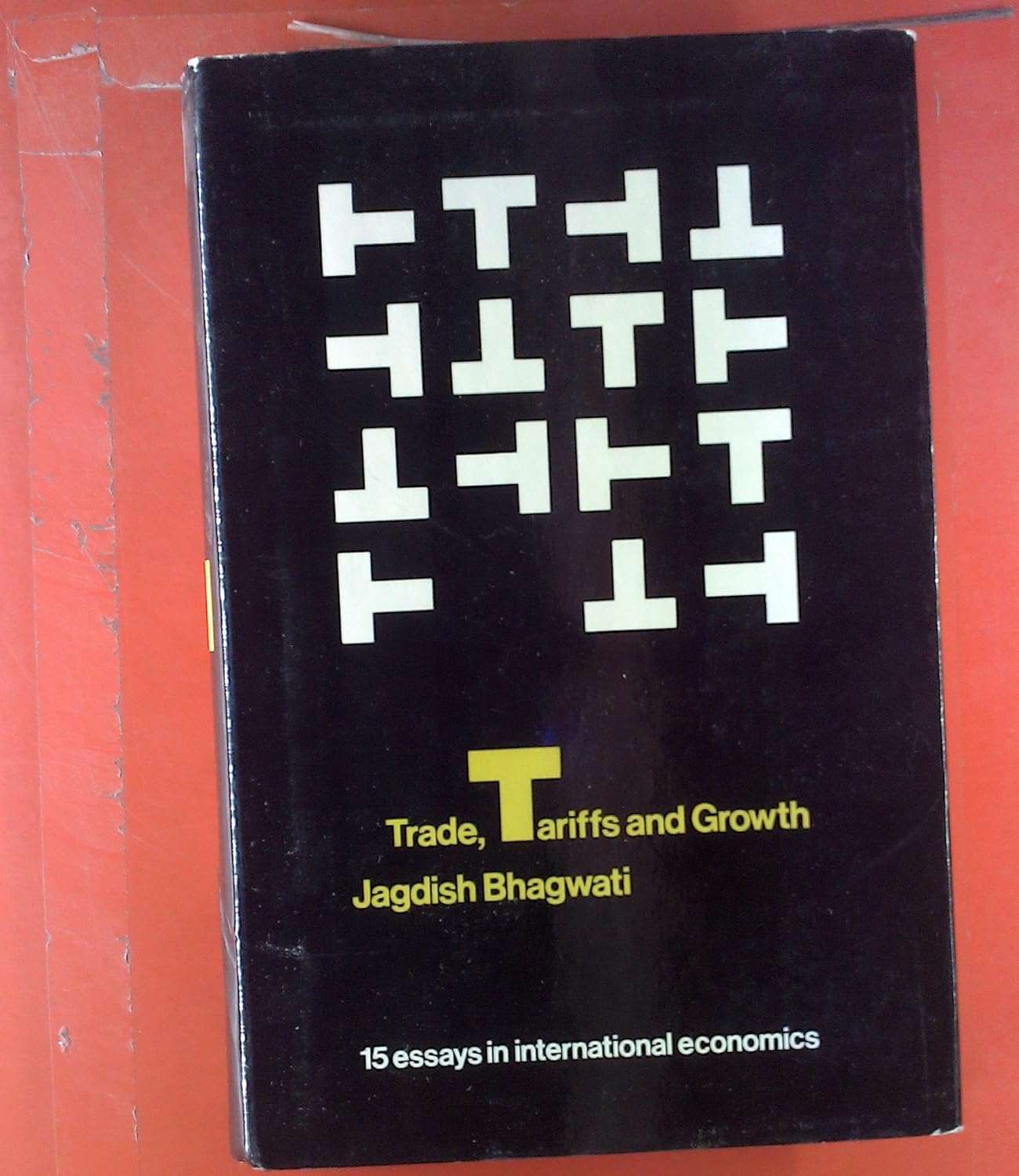
In 1999, because of an op/ed opposing capital controls that I wrote in the Wall Street Journal in 1998, I was invited to give a paper on the subject to a small gathering in Tokyo. I don’t remember all the participants but two that I do remember were Jagdish Bhagwati and David Weinstein, both of Columbia University.
During one of the sessions, the Economic Freedom of the World index came up. Jagdish said that he didn’t think it was justified to list the inflation rate as a component of economic freedom because inflation had nothing to do with economic freedom. I had an answer to that but I wanted to follow the rules and so I never got to give my answer.
These are the four components of the sound money measure: (1) money growth, (2) standard deviation of inflation, (3) inflation in the most recent year, and (4) the ability to have foreign currency bank accounts. Notice that the first one is connected to inflation and the second and third are directly about inflation.
Here’s the answer that the authors of the report give in their latest report (p. 5):
Sound Money focuses on the importance of money and general price stability in the exchange process. Sound money—money with relatively stable pur- chasing power across time—reduces transaction costs and facilitates exchange, thereby promoting economic freedom. The four components of this area provide a measure of the extent to which people in different countries have access to sound money. In order to earn a high rating in Area 3, a country must follow policies and adopt institutions that lead to low (and stable) rates of inflation and avoid regulations that limit the ability to use alternative currencies.
That’s not a bad answer. The one I wanted to give Jagdish was a little different. It’s this. The point of the index, recall, is to measure economic freedom. But because we have a government-produced money, and virtually every other country does too, how do we measure economic freedom in the provision of money? The way to do so is to ask what we would have if the government stayed out of money and we had private provision of money. There are strong reasons to think that the inflation rate would be low and fairly steady. So that relates to (2) and (3). There are also strong reasons to think that money supply growth would be low, thus satisfying (1). Of course, the freedom to hold a bank account containing foreign currency is an obvious aspect of freedom, although that doesn’t directly relate to Jagdish’s objection.
Thus my justification for including money supply growth, variability of inflation, and the most recent inflation in the measure of economic freedom.
By the way, notice where the U.S. is on this measure: #31.
Note: The above pic is of Jagdish Bhagwati’s 1969 book, Trade, Tariffs and Growth. It was the main text of my Ph.D. course in international trade at UCLA in 1973-74. I learned more about international trade and tariffs from this book than from any other. It was taught by Robert E. B. Lucas, who is now a professor at Boston University. I thought Bhagwati should have co-won the Nobel Prize in economics with Paul Krugman in 2008. He didn’t. But come on guys, grow up and do the right thing. Jagdish is 89. It can’t be given posthumously. Give it to him this year.


READER COMMENTS
John Hall
Sep 26 2023 at 8:39am
I would emphasize that sound money is also a commitment to a sound fiscal policy.
Richard W Fulmer
Sep 26 2023 at 10:11am
The Economic Freedom of the World index considers taxes in its analysis. If that’s reasonable, and I believe that it is, then why shouldn’t inflation, which is an indirect tax, be included as well?
David Henderson
Sep 26 2023 at 11:41am
Very good point. Inflation is, after all, a tax on money balances.
Thomas L Hutcheson
Sep 27 2023 at 8:20am
But the optimal rate for any given tax, including inflation, is not necessarily zero.
robc
Sep 28 2023 at 10:09am
Bryan Caplan in the recent anarcho-capitalism debate would disagree.
Thomas L Hutcheson
Sep 29 2023 at 1:54pm
So what? It would not be the first time Kaplan did not agree with me about something.
Dylan
Sep 26 2023 at 10:37am
How does crypto do on these points? It seems that on #4 is does pretty well, but this is despite government policies not because of them. It seems that even countries like China have trouble effectively outlawing crypto. The other measures will depend on which crypto currency you’re looking at, Bitcoin does well on the first, very stable growth in the money supply that is built mechanically into the system and virtually impossible to change. I don’t have the exact numbers, but I’m guessing that 2 & 3 don’t look as good though?
David Henderson
Sep 26 2023 at 11:41am
I need to ponder before answering.
Dylan
Sep 27 2023 at 9:41am
Wanted to say that I appreciate this answer. Too often we (or at least I) rush in without fully thinking through the response. I know I often want to say something before I get distracted with other things, or (when posting on Econlib) during the first day when comments tend to be the most active, or the famous “Someone is wrong on the internet”
It is refreshing to see a post that says the person wants to ponder the topic before responding. Something I’ve seen from you a few times I think, and I think most of the time you do come back and respond after thinking about it.
David Henderson
Sep 29 2023 at 3:21pm
Dylan,
Thanks for understanding. “Pondering” didn’t take long once I divided up your comment into pieces.
You write:
I agree with that.
You write:
Exactly.
You write:
For Bitcoin, which is the one I know best (as an observer and friend of holders rather than a holder myself), on #2, that’s absolutely correct. Volatility is high. On #3, between September 2022 and now, its price has risen from about $20k to about $27k, an increase of 35%. So inflation in the last year, with Bitcoin as numeraire, was -63%. I don’t know much about the others. So inflation is very low but it’s so low that that’s bad also.
Dylan
Sep 30 2023 at 4:31pm
Thanks for the response. Curious though, does that give you any reason to rethink your position on the below? I’d say that it is the fact that bitcoin does well on #1, is at least partially responsible for it not doing so well on #2 &3. If demand for bitcoins goes up a lot, that naturally leads to the price (whether measured against fiat or some basket of goods) going up a lot as well.
David Henderson
Oct 2 2023 at 7:07pm
Ah, now I get why you asked. You see cryptocurrencies as being important money supplies in a free economy. I see them as important but not the dominant currency. I think it more likely that something like gold would be dominant.
Scott Sumner
Sep 26 2023 at 12:34pm
I’d replace the two inflation measures with NGDP growth and volatility. And drop money growth entirely.
Robert Lawson
Sep 26 2023 at 5:51pm
Thank you David for this series of posts. For this area, one aspect of sound money that we don’t explicitly mention is that high inflation is inevitably variable and hard to predict. Unexpected changes in inflation rates effectively alter the intended terms of many long term contracts typically transferring income from creditors to debtor. It is this government-created redistribution of income aspect of (unexpected) inflation was also in our minds when we created this area.
Thomas L Hutcheson
Sep 27 2023 at 8:26am
Correct. Inflation should not be higher or lower than needed to facilitate movements in relative prices when some prices are are sticky upward and others are sticky downward,
David Henderson
Oct 2 2023 at 7:08pm
Good point.
Thomas L Hutcheson
Sep 26 2023 at 6:16pm
If all that is means by “sound” is “reduces transaction costs and facilitates exchange,” sign me up for “sound” money. 🙂
I’d point out, of course, that when an economy experiences economic events, “shocks,” of varying frequencies and magnitudes and some prices cannot adjust as rapidly downward as upward and others as rapidly upward as downward, “sound” would not imply zero inflation. Just how much inflation best “reduces transaction costs and facilitates exchange” in a given economy at a particular time is TBD based on the rigidities in price movements and the size of the shocks. It’s the role of the central bank to set the values of its policy instruments to achieve that best rate of inflation.
How well outsiders can judge a central bank’s performance for purpose of including this judgement in an assessment of “economic freedom” is a separate question.
Comments are closed.